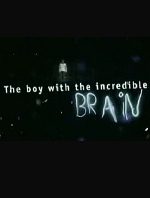This week, in our final discussion for the year, we talked about a topic that has gained more and more attention as the years have gone by. This topic is autism, the developmental disorder that affects children at a very young age. This disorder is considered a spectrum disorder that ranges from Classical Autism to Asperger’s Syndrome to Childhood Disintegrative Disorder. In children who develop autism, it isn’t noticed right away that anything is wrong. It isn’t until the child gets to the stage where they should be developing social skills such as babbling and reacting to their name. It isn’t until they fail to develop those skills at certain ages that the parents notice something is off and take their child to the doctor.
A hypothesis that has been suggested is that the child is born normal with no signs of anything wrong, then a little while later the brain grows larger than normal. The body, noticing that the brain is larger than it should be, starts “pruning” down the number of neurons, causing a type of stress in the brain. This stress isn’t the “Oh no, I have a test tomorrow and I have yet to study” type of stress. This stress is referred to as oxidative stress, which means that cells have too many reactive species and they can’t keep up in getting rid of them. This causes many processes to be activated or inhibited that causes a change in how the brain should develop and manifests in the impaired social development we see in autistic kids. Another that can arise from autism is that the kid has extreme focus when it comes to certain things and almost no focus for pretty much everything else. While this is not usually a good thing, good things can arise from this very specialized focus.
An example that comes to mind is Daniel Tammet, who has been called the Boy with the Incredible Brain. Daniel is in his 30’s and was diagnosed with autism and then Asperger’s at age 25. Even though he has Asperger’s, he is incredibly smart and his “focus” that he has is with languages and numbers. He has been studied all over the world by many scientists that aim to unlock this power that Daniel has. The power that he has is that he can memorize and calculate extremely complicated things. For instance, he learned Icelandic in a week and was put on TV to see if he could sustain a conversation live with the newspeople. For those of you who don’t know, Icelandic has been said to be one of the hardest, if not the hardest languages to learn as a second language. And he did it in a week, where an average person would take months even years of training to get to where he did. Another fixation that Daniel has is with numbers. He sees numbers differently than the average person. He has what is called synesthesia, which means that two or more senses you have combine and you experience both at the same time even though one of the senses shouldn’t be activated. For Daniel, when he hears a number, he sees shapes and colors that go with that number and no 2 numbers are the same. Also on the topic of numbers, Daniel has memorized over 22,000 digits of pi and recited them back after only 1 reading.
Anyway, why I bring up Daniel is because we think of autism as a developmental disorder that ruins the life of the child and they will be behind other kids in development. Daniel is an example of how, yes you can have autism (or any disorder on the spectrum), but you can also take that disability and turn it into a good thing. For Daniel, he took the obsessive nature he had with numbers and memorizing and turned it into a reason to help people by writing books and allowing himself to be researched. As a side note, I recommend watching the documentary on Daniel Tammet called The Boy with the Incredible Brain.
Autism and the Boy with the Incredible Brain
